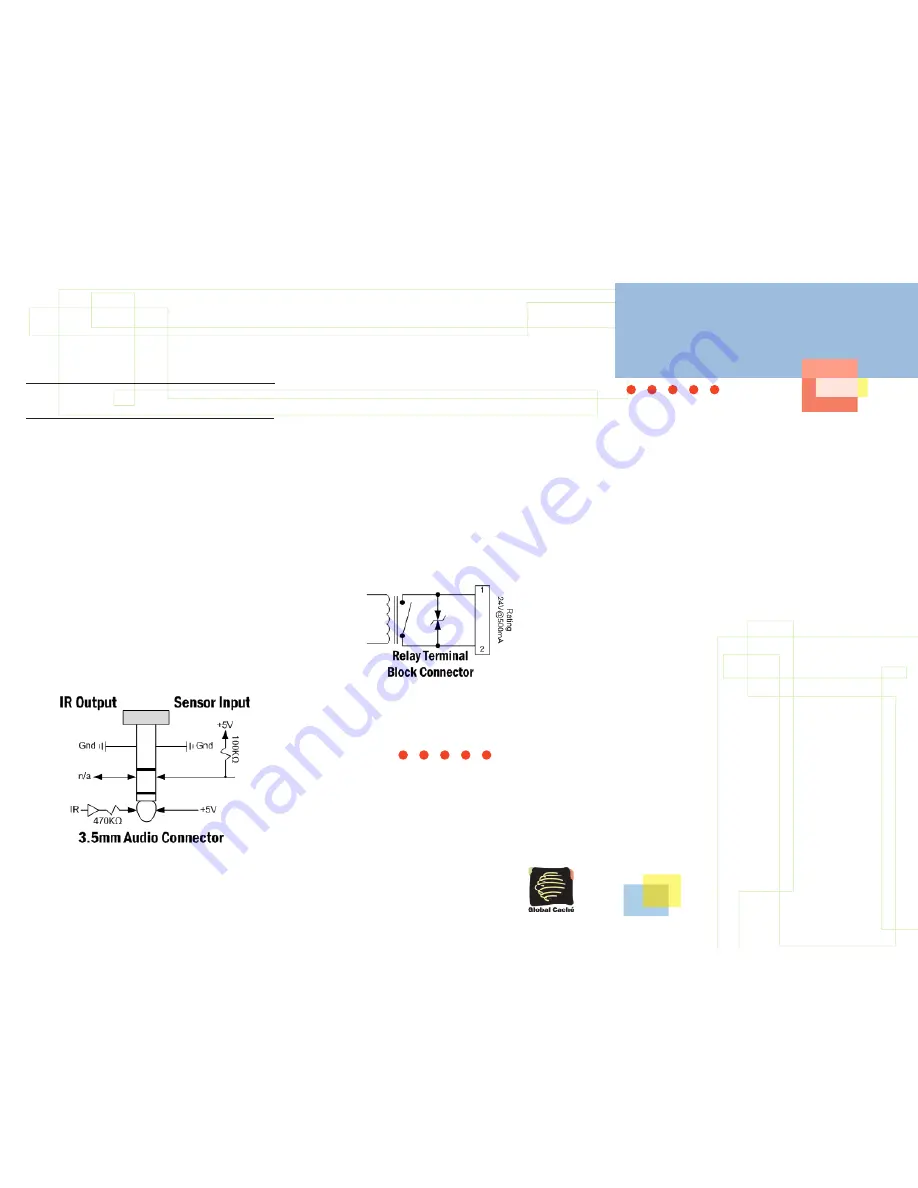
The GC-100-12 and GC-100-18
Network Adapters
connect diverse and previously unconnected devices
and appliances in a network-based home, school or
business. Using many commonly needed controls and
sensor inputs in one box, the GC-100 provides an
easy way for controlling real-world devices, reducing
the time and complexity of an installation by
eliminating piggybacked components and multiple
power supplies. By simply sending commands
over the network, your audio/visual equipment
is turned to the proper volume by infrared (IR),
shades are lowered with relays, and your favorite
DVD is selected through serial communications;
and all started with the push of a button. As a
result of using open standards (for example, TCP/
IP), any networked device, such as your PC, can
send and retrieve GC-100 data. With the GC-100,
a variety of devices can be connected to control and
monitor the environment over a network or even the
Internet.
The GC-100 is designed to work with many of
the popular control software packages. These
packages contain software drivers needed for the
proper operation of the GC-100, as well as, an easy-
to-use interface for configuring your automated
environment. It is required that such a package be
employed when using the GC-100 product family.
Getting started is simple.
All it requires is connecting
power, configuring the unit, and attaching cables.
This guide provides a step-by-step method to get you
up and running quickly and easily with a discussion
of each connector’s pin out, web page configuration,
and specification.
voltage is ±24V, with an “on” indication for voltages
greater than 2.5V and “off” when less than 0.8V with an
input impedance of ~100KΩ.
When selected, IR commands can be transmitted
without their carrier frequency, as waveform envelopes.
This is used for direct audio/video inputs, such as
Control-S, or for modulating RF signals.
When configured as GC-BL2 Blaster mode, the
connector is to be used with a GC-BL2 IR Blaster. This
mode does not support IR blasters provided by other
manufacturers.
Sensor Notifications
are used to automatically signal
changes in sensor state. Any connector configured as an
input with auto-notify will send notifications. The state
of a sensor can also be polled at any time.
Relays
are used for switching devices on and off. The
contacts are “normally open” and rated for 500mA at 24V
(DC or AC). The mating connectors use screw terminals
to attach wiring. Relay contacts are non-directional, and
wires may be connected in any order.
Relay contacts are protected against transients greater
than 150 volts caused by switching inductive loads, such
as motor and relays. The transient voltage suppressor
(TVS) eliminates contact arching by clipping positive
and negative voltage spikes that exceed 150 volts.
Global Caché, Inc. - 160 East California Street - PO Box 1659
Jacksonville, Oregon 97530 - Phone (541) 899-4800
Fax (541) 899-4808 - www.globalcache.com
Support: [email protected]
Copyright ©2008 Global Caché, Inc. All rights reserved.
PN: 030127-02 ver.13/Information subject to change without notice.
The serial device attaching to the GC-100 will likely
employ a 9 or 25 pin DB connector. Following is the
standard wiring configuration for a serial cable. It is
not guaranteed that the standard has been followed,
but it is a good starting place. For example, when
connecting the GC-100 male serial connector to A/V
equipment that also uses a male DB9 connector pins
2 and 3 would need to crossover. Pin 2 on the GC-
100 would connect to pin 3 on the A/V device.
GC-100
DB9 DB9 DB9 DB25 DB25
male male female
male female
Data
RxD 2
3
2
3
2
TxD 3
2
3
2
3
Gnd 5
5
5
7
7
Data Flow Control
RTS 7
8
7
5
4
CTS 8
7
8
4
5
Modem Controls
DTR 4
6
4
6
20
DSR 6
ignored by the GC-100
IR output and sensor input
share a common
connector and indicator on the GC-100. Each 3.5mm
audio connector is independently configured using
the internal web pages or the GC-100 Discovery &
Configuration Utility available for download from
www.globalcache.com. Each connector has three
contacts configured as either an infrared (IR) output,
Control-S output (IR/no carrier), GC-BL2 IR Blaster
output, or sensor input, as shown below.
When configured as an output the indicator will blink
as an IR command is transmitted. When functioning
as a sensor, the indicator is “on” when a positive input
or no connection is present. The maximum sensor
input
Global Caché
GC-100-12/18
Network Adapter
Quick Start Guide
This device complies with Part 15 of FCC rules and with ICES-
003 of Industry Canada. Operation is subject to the following two
conditions:
(1) This device may not cause harmful interference, and
(2) This device must accept any interference received, including
interference that may cause undesired operation.




















